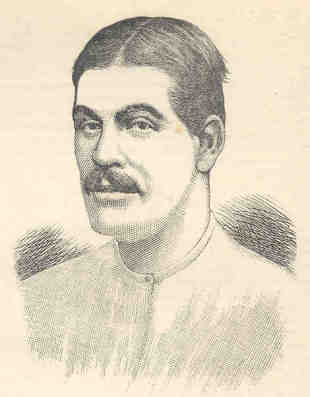All out for 12
A look back to when Oxford University were bowled out for 12 - still the lowest first-class score on record
Martin Williamson
11-Oct-2008

| ||
In the days before the preparation of pitches became a mechanised art, outfields were kept low by sheep and the square was often little more than a strip manually cut into the surface. As a result pitches were invariably poor - Lord's was one of the worst until the 1880s - and low scores prevalent.
Even by the standards of the day, the match between Oxford University and MCC at the university's Magdalen College ground in 1877 was exceptional. There was a large crowd, and even though it was sunny, the temperature barely nudged 50 degrees Fahrenheit. Furthermore, it had rained all the previous week, which had hampered the groundsman and ensured the pitch cut up badly from the off.
The MCC side had three class batsmen and three good bowlers, supplemented by some decent club cricketers in the middle order. Oxford, meanwhile, struggled with their batting and by the end of the season only three scores of over 50 had been recorded, two of them hundreds by Francis Buckland. Like Arthur Heath, another decent Oxford bat, Buckland did not play against MCC.
Oxford won the toss and chose to bat. However, their captain, Alexander Webbe, who went on to play for England, was not on the ground when that took place. By the time he did arrive, at lunch, he discovered that not only were his team in the field, but that their innings was also done and dusted.
In 43.2 four-ball overs, Oxford were dismissed for 12, still the lowest score in a first-class game. Somehow the innings lasted 80 minutes and contained seven scoring shots.
Nottinghamshire left-arm fast bowler Fred Morley, who three years later opened the bowling for England in their first home Test, took 7 for 6. Arnold Rylott, a professional, a poet and a maker of snuff, took the other two wickets to fall.
In the afternoon MCC's better batsmen steered them to 93 for 2 before the remainder fell away - "the rest of the innings calls for no comment", reported the Manchester Guardian. They were bowled out for 124, with Henry Tylecote taking 8 for 51. Originally a wicketkeeper and occasional bowler, in 1877 he took his bowling more seriously and finished the summer with 31 wickets.
Shortly after tea Oxford were batting again, and although they reached 17 for 1, from there on in it was pretty much a repeat of the first innings and they were bowled out for 35 in just under an hour. The last nine wickets added 18 and five batsmen completed pairs. Morley again wreaked the most damage with 6 for 8, giving him match figures of 13 for 14, while Yorkshire's Robert Clayton, allowed to share the new ball, took 4 for 26.
Again, scoring shots were at a premium. Webbe, who top scored with 10, hit a four; his younger brother, Herbert, a five; and James Savory struck a six, no mean achievement as in those days that necessitated smacking the ball out of the ground.
To the east, Cambridge enjoyed a good day against Surrey, bowling them out for 162, and the Manchester Guardian warned that Oxford's prospects for the Varsity match a month later were "grim".
With the three-day match over inside one, Oxford had to wait to play their next game, at home to Gentlemen of England. Again they twice failed to pass 100 but at least they gave their visitors a game, and the match extended into a third day.
As if the unpredictability of sport needed underlining, when Oxford and Cambridge met at Lord's the following month, a Buckland hundred steered Oxford to a ten-wicket win.
Martin Williamson is executive editor of Cricinfo